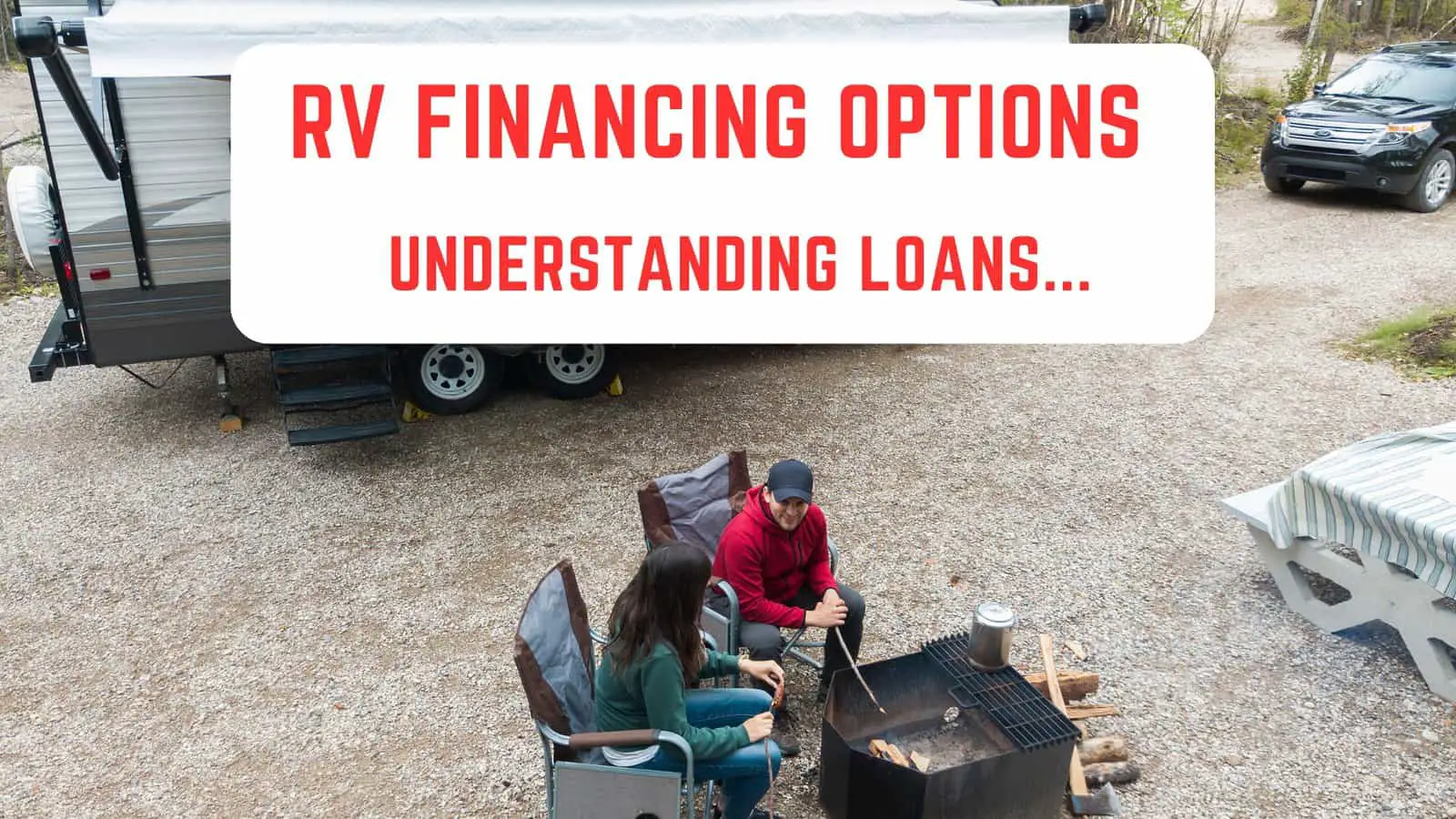Are you dreaming of hitting the open road and exploring the great outdoors in your very own RV? Before you can embark on this journey, it’s important to understand your financing options. In this guide, we’ll break down the different types of RV loans and rates to help you make an informed decision when purchasing your home on wheels.
1. Introduction to RV Financing
Financing an RV is similar to financing a car or home, with a few unique twists. You’ll need to consider factors like your credit score, the loan term, and the type of RV you want to purchase. RV financing is typically done through banks, credit unions, and specialized RV lending companies.
Before diving into the details, it’s important to note that RVs can be expensive. However, with the right financing option, you can enjoy the freedom of the open road without breaking the bank.
2. Types of RV Loans
There are several types of loans available for RV financing. Each has its own advantages and disadvantages, so it’s crucial to understand which one works best for you.
A. Secured RV Loans
Secured loans require collateral, which is typically the RV itself. This means that if you fail to make payments, the lender can repossess the RV. The benefit of a secured loan is that it often has lower interest rates than unsecured loans.
B. Unsecured RV Loans
Unsecured loans do not require collateral, making them a higher risk for lenders. As a result, they typically come with higher interest rates. However, this also means that your RV is safe from repossession if you default on your loan.
C. Dealer Financing
Dealer financing is when you finance your RV purchase through the dealership itself. This can be convenient, but it may not always offer the best rates or terms. Be sure to compare offers from multiple lenders before making a decision.
D. Credit Union Financing
Many credit unions offer competitive RV financing rates to their members. If you’re already a member of a credit union, this can be a great option to explore.
3. Understanding Interest Rates and Loan Terms
Interest rates and loan terms are two critical components of RV financing. Here’s what you need to know:
A. Interest Rates
The interest rate is the cost of borrowing money, expressed as a percentage of the loan amount. Rates can be fixed or variable. Fixed rates remain the same throughout the loan term, while variable rates can fluctuate based on market conditions.
B. Loan Terms
The loan term is the length of time you have to pay off your RV loan. Terms typically range from 10 to 20 years, with longer terms resulting in lower monthly payments but more interest paid over the life of the loan.
4. Factors That Affect Your RV Loan Rate
Several factors can influence the interest rate on your RV loan:
- Credit score: A higher credit score can help you secure a lower interest rate, as it shows lenders that you’re a responsible borrower.
- Down payment: A larger down payment can lead to a lower interest rate, as it reduces the lender’s risk and demonstrates your financial commitment.
- Loan term: Shorter loan terms often come with lower interest rates, but they also mean higher monthly payments.
- Type of RV: Newer RVs may have lower interest rates than used models, and rates can vary depending on the make and model.
- Debt-to-income ratio: A lower debt-to-income ratio demonstrates your ability to manage your monthly debt payments and can lead to a better interest rate.
5. How to Get the Best RV Loan Rate
To secure the best RV loan rate, follow these tips:
- Check your credit score: Review your credit report for any errors and take steps to improve your score before applying for a loan.
- Shop around: Compare loan offers from multiple lenders, including banks, credit unions, and online lenders.
- Negotiate: Don’t be afraid to negotiate with lenders for better rates or terms.
- Consider refinancing: If you already have an RV loan, consider refinancing to take advantage of lower interest rates or better loan terms.
- Maintain good credit: Make all of your loan payments on time and keep your credit utilization low to ensure a strong credit score.
6. The Benefits of RV Financing
Financing an RV can offer several benefits, including:
- Affordability: With a loan, you can spread the cost of your RV purchase over several years, making it more affordable.
- Flexible repayment options: RV loans often come with flexible repayment terms, allowing you to choose a payment schedule that suits your budget.
- Tax benefits: Depending on your situation, the interest paid on your RV loan may be tax-deductible if you use your RV as a second home.
- Ownership: When you finance an RV, you own it outright once the loan is paid off, giving you the freedom to travel and enjoy your investment.
In conclusion, understanding your RV financing options is essential for making an informed decision when purchasing your home on wheels. By considering factors such as loan types, interest rates, and loan terms, you can secure a financing solution that suits your needs and budget. Happy travels!
7. Leasing an RV: An Alternative Financing Option
Leasing an RV is another option for those who want to enjoy the benefits of RV travel without the long-term commitment of ownership. Here are some key points to consider when looking into leasing an RV:
- Lower upfront costs: Leasing typically requires a smaller down payment than purchasing, which can make it more accessible for some.
- Fixed-term commitment: Lease agreements are for a fixed period, usually a few years. At the end of the term, you can choose to return the RV, purchase it, or lease a new one.
- Maintenance: Lease agreements often include maintenance coverage, which can help reduce the overall cost of upkeep.
- Upgrade potential: Leasing allows you to enjoy the latest RV models without the financial commitment of purchasing, making it easier to upgrade to newer models at the end of your lease.
8. Specialized RV Lenders
Some lending institutions specialize in RV financing, providing a variety of loan options tailored to the unique needs of RV buyers. These lenders may offer:
- Competitive interest rates: Specialized RV lenders often have competitive rates due to their focus on the industry.
- Flexible terms: These lenders may provide extended loan terms or other flexible repayment options to accommodate your budget.
- Industry expertise: A lender with RV industry experience can help guide you through the financing process and offer tailored solutions to fit your needs.
9. Pre-Approval for RV Financing
Before starting your RV shopping journey, consider getting pre-approved for financing. Pre-approval offers several advantages:
- Budgeting: Knowing your approved loan amount can help you create a budget and narrow down your search for the perfect RV.
- Negotiating power: Pre-approval signals to dealers that you’re a serious buyer, which can give you more negotiating leverage.
- Faster purchase process: Having pre-approval in hand can help speed up the financing process once you find the RV you want to buy.
10. Insurance and Extended Warranties
When financing an RV, don’t forget to factor in the costs of insurance and any extended warranties you may want to purchase. Here are some tips for choosing the right coverage:
- Shop around: Compare insurance quotes from multiple providers to find the best coverage and price.
- Understand coverage options: Research the different types of insurance coverage available, such as comprehensive, collision, and liability coverage, to determine what best suits your needs.
- Consider an extended warranty: An extended warranty can provide additional protection for your RV investment, covering costs related to mechanical breakdowns and repairs.
Take a look at our article on: RV Warranty and Service Options: Making an Informed Choice
11. Preparing for RV Ownership
Once you’ve secured financing for your RV, take the time to prepare for your new adventures. Here are some suggestions:
- Budget for expenses: Create a budget that includes RV loan payments, insurance, maintenance, fuel, and other travel expenses.
- Learn about your RV: Familiarize yourself with your RV’s features, systems, and maintenance requirements.
- Join RV clubs and forums: Connect with fellow RV enthusiasts to share experiences, tips, and advice on RV travel and ownership.
By understanding the various financing options and taking the time to research and prepare, you can make your RV dreams a reality and set off on the adventure of a lifetime.
Good luck, and happy camping!
Check out our article on: New vs. Used RVs: Weighing The Pros And Cons

